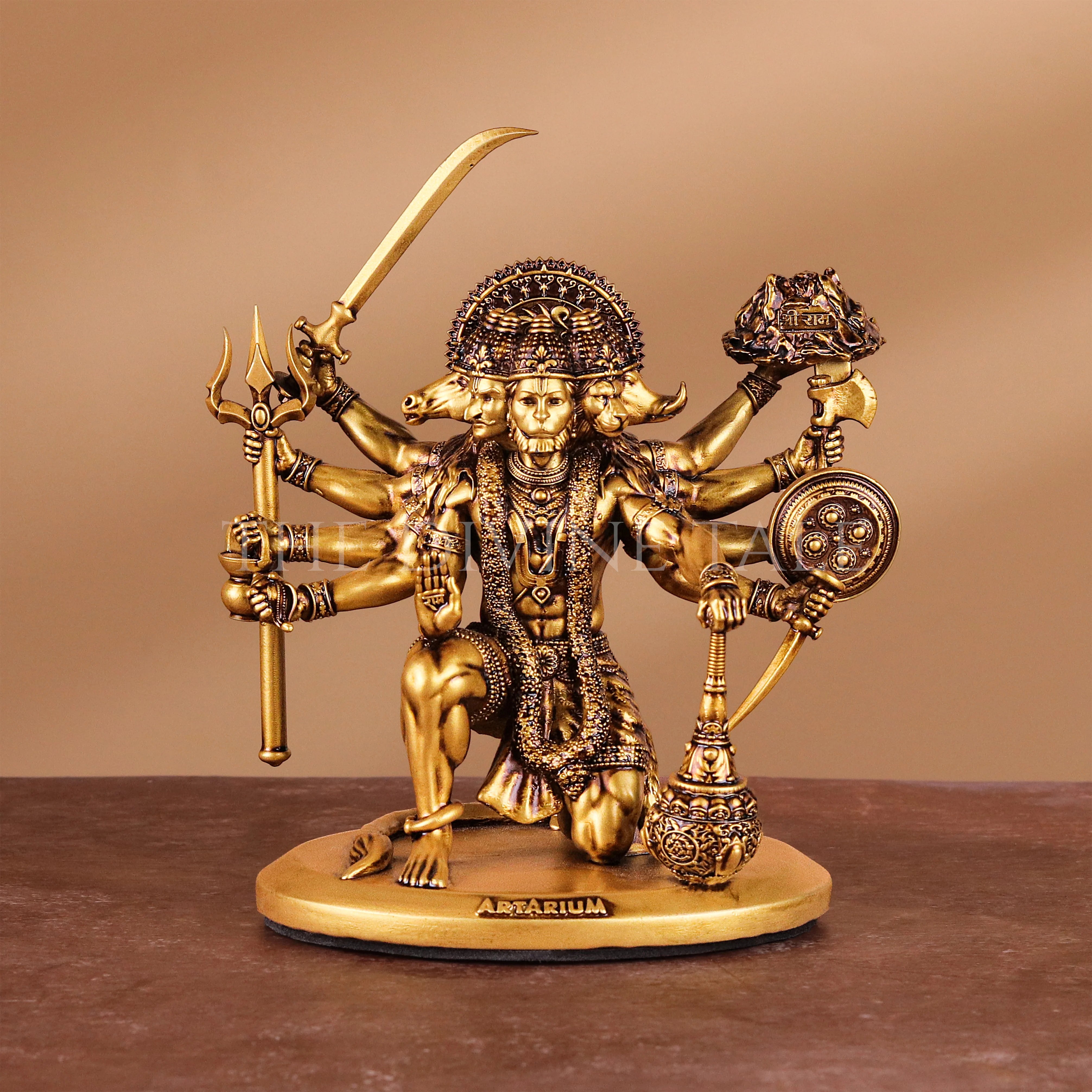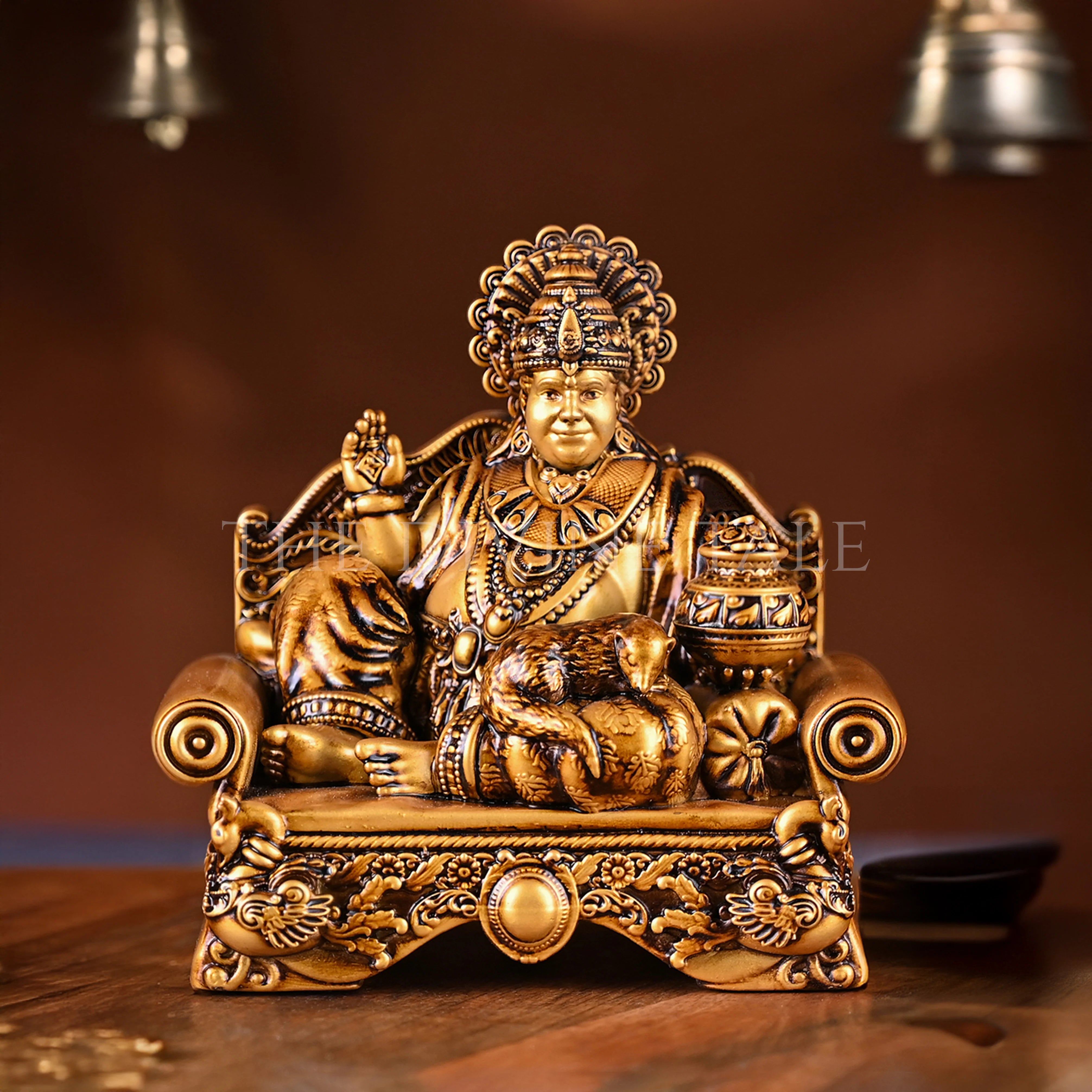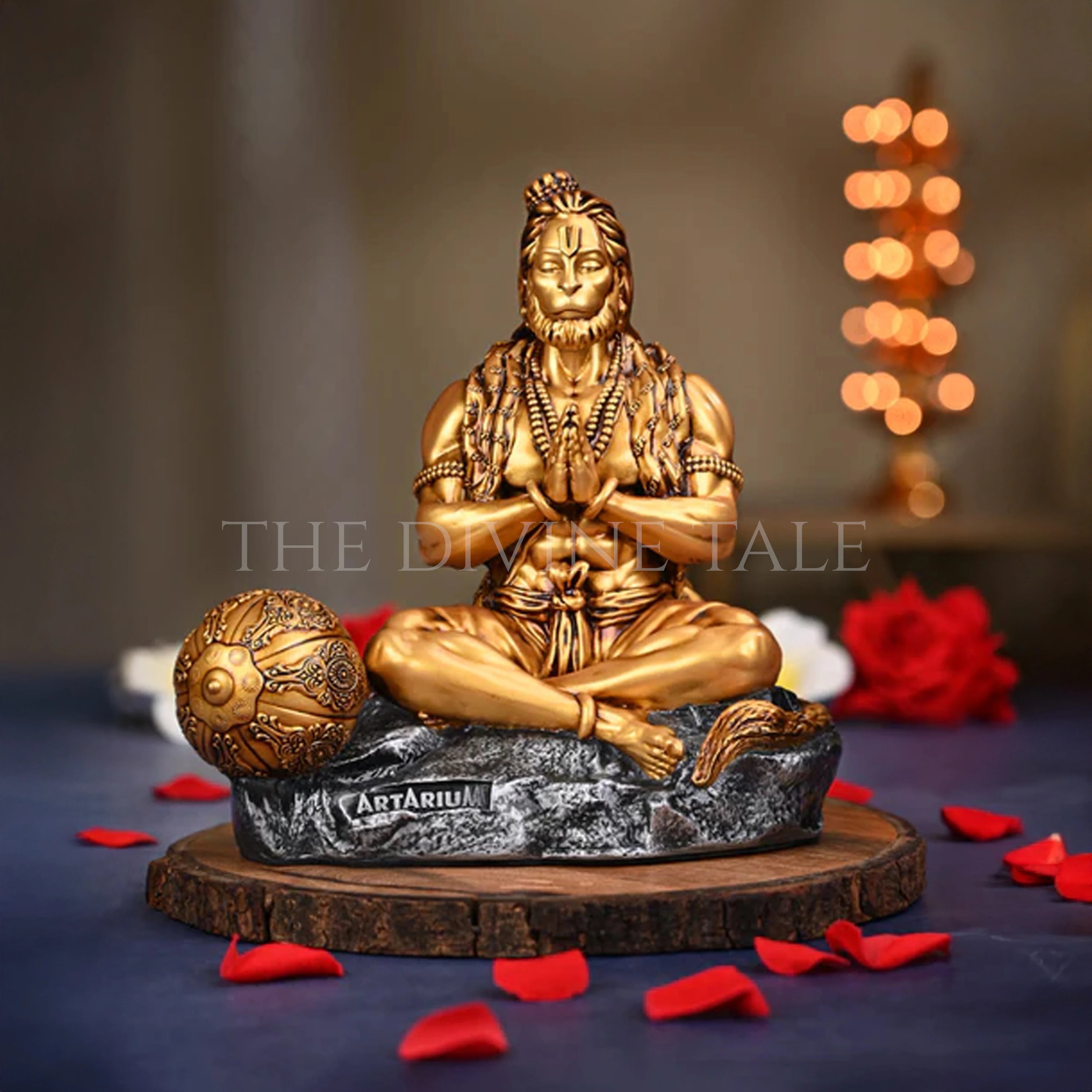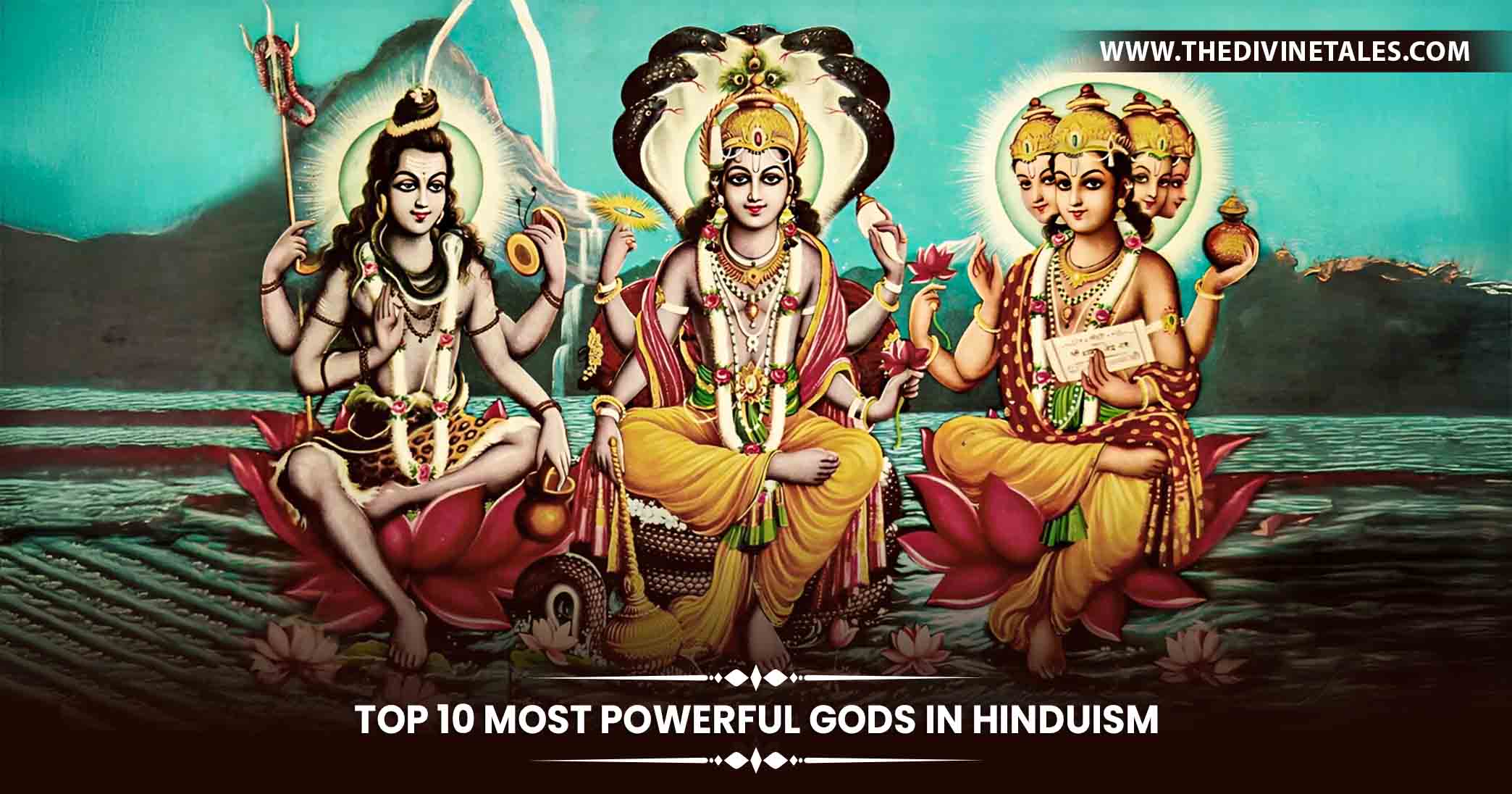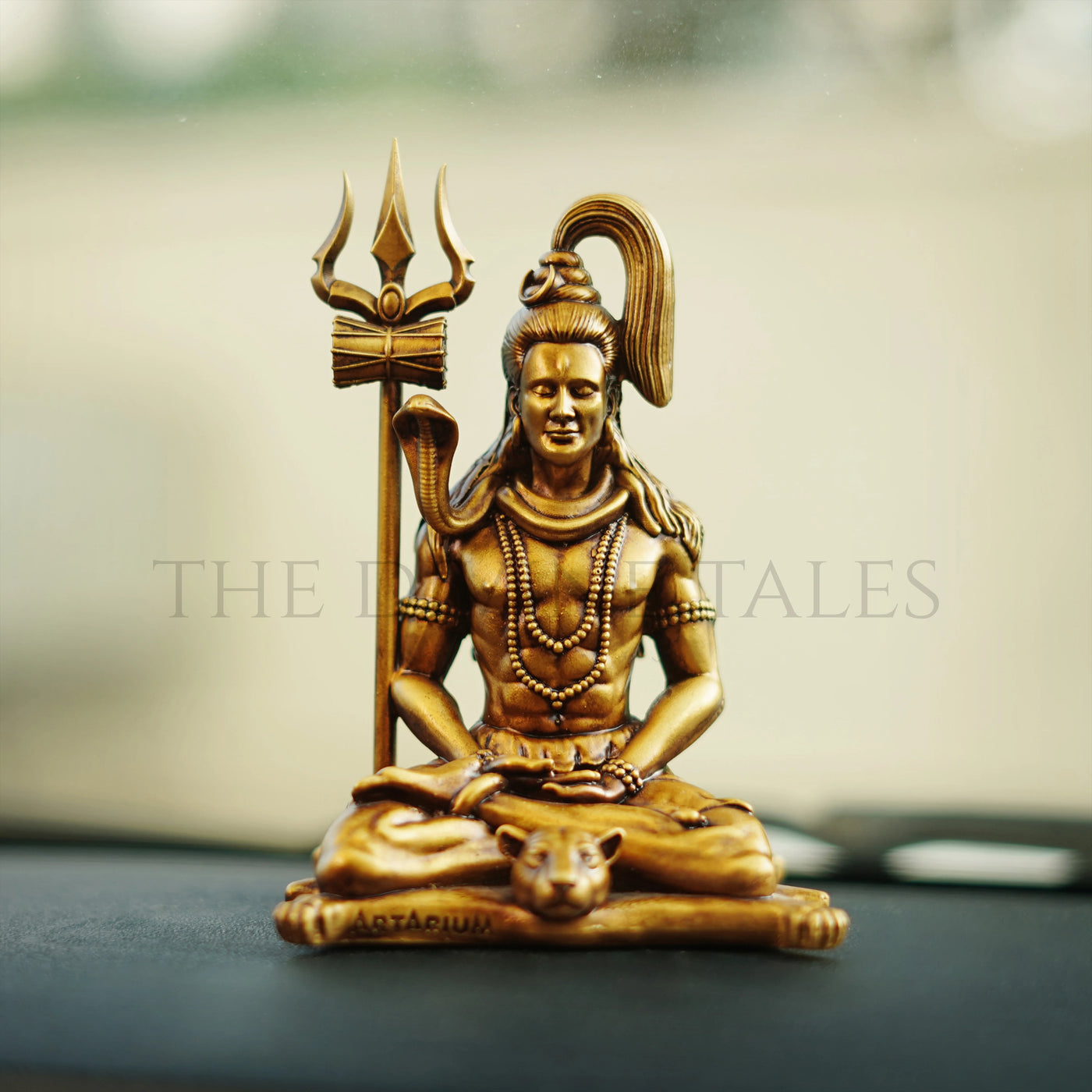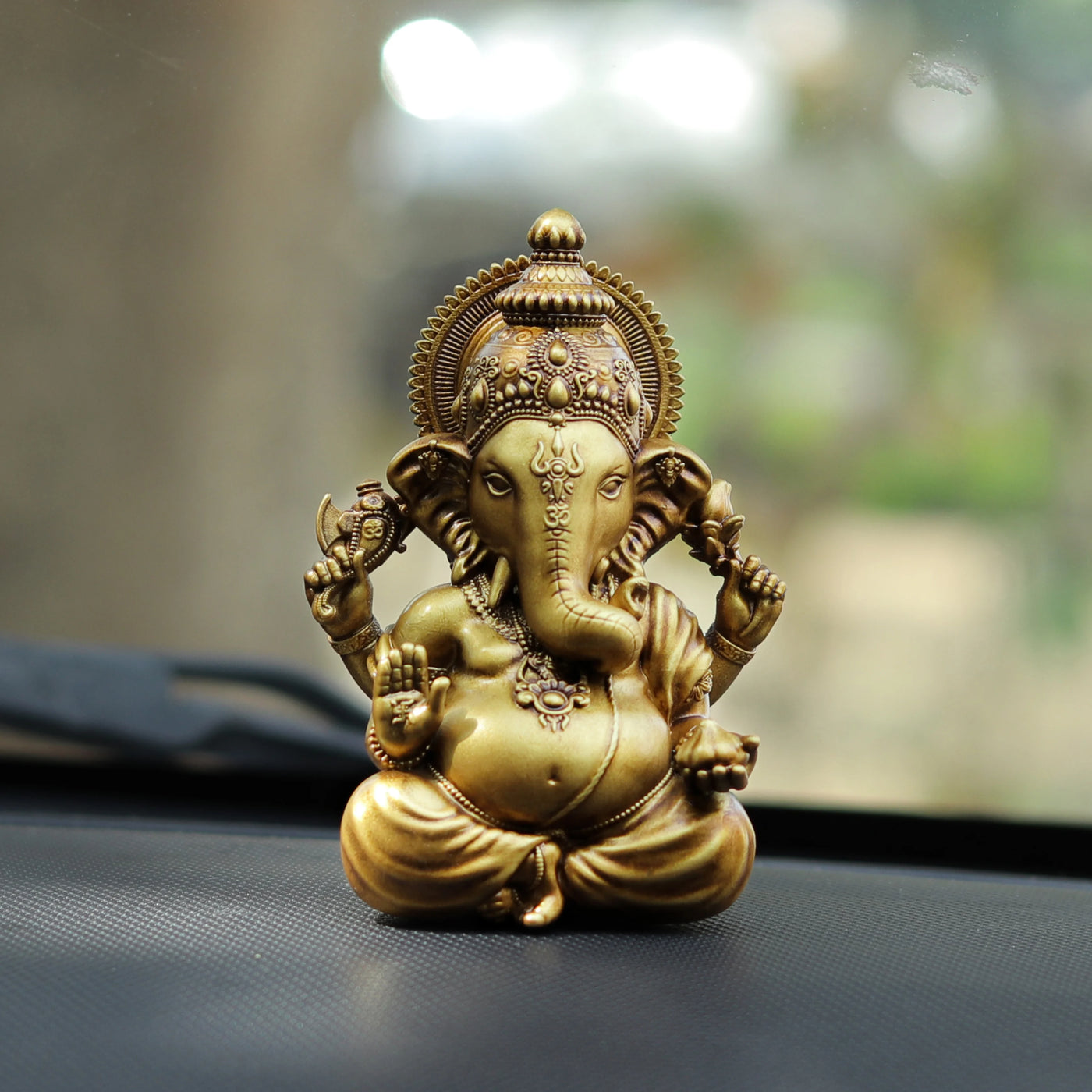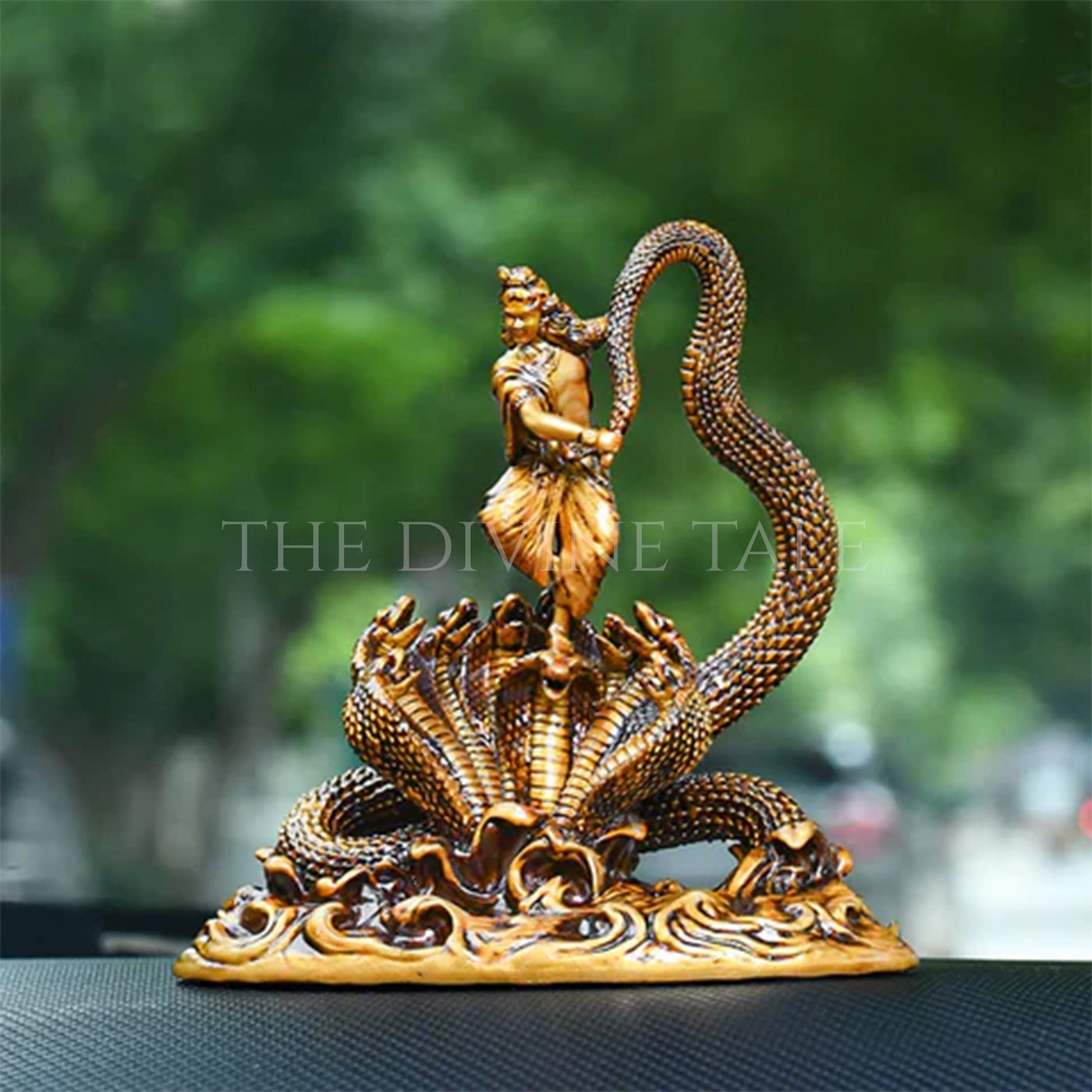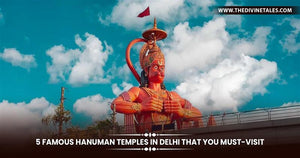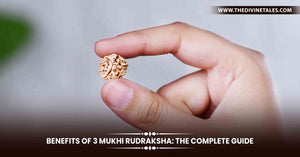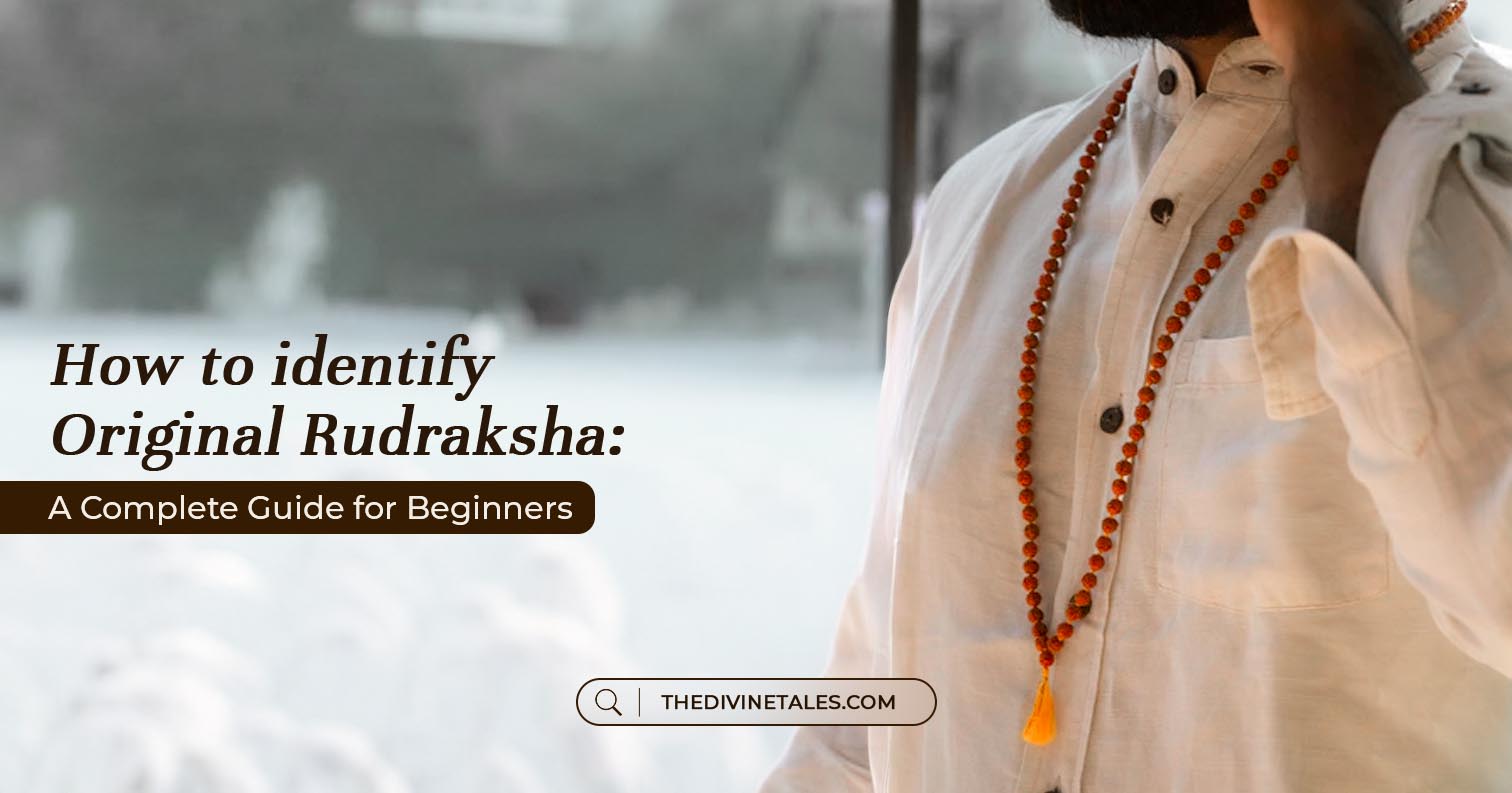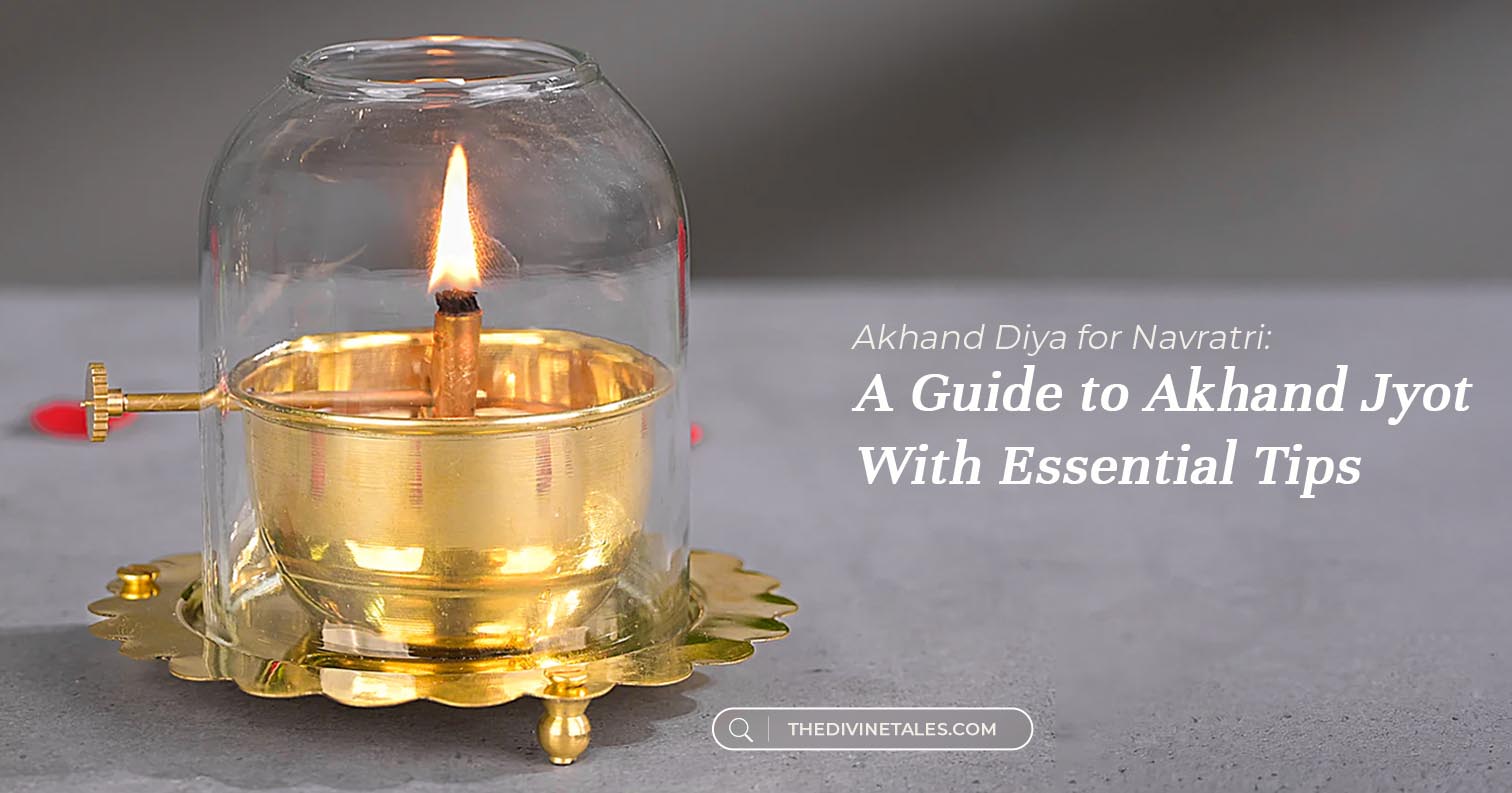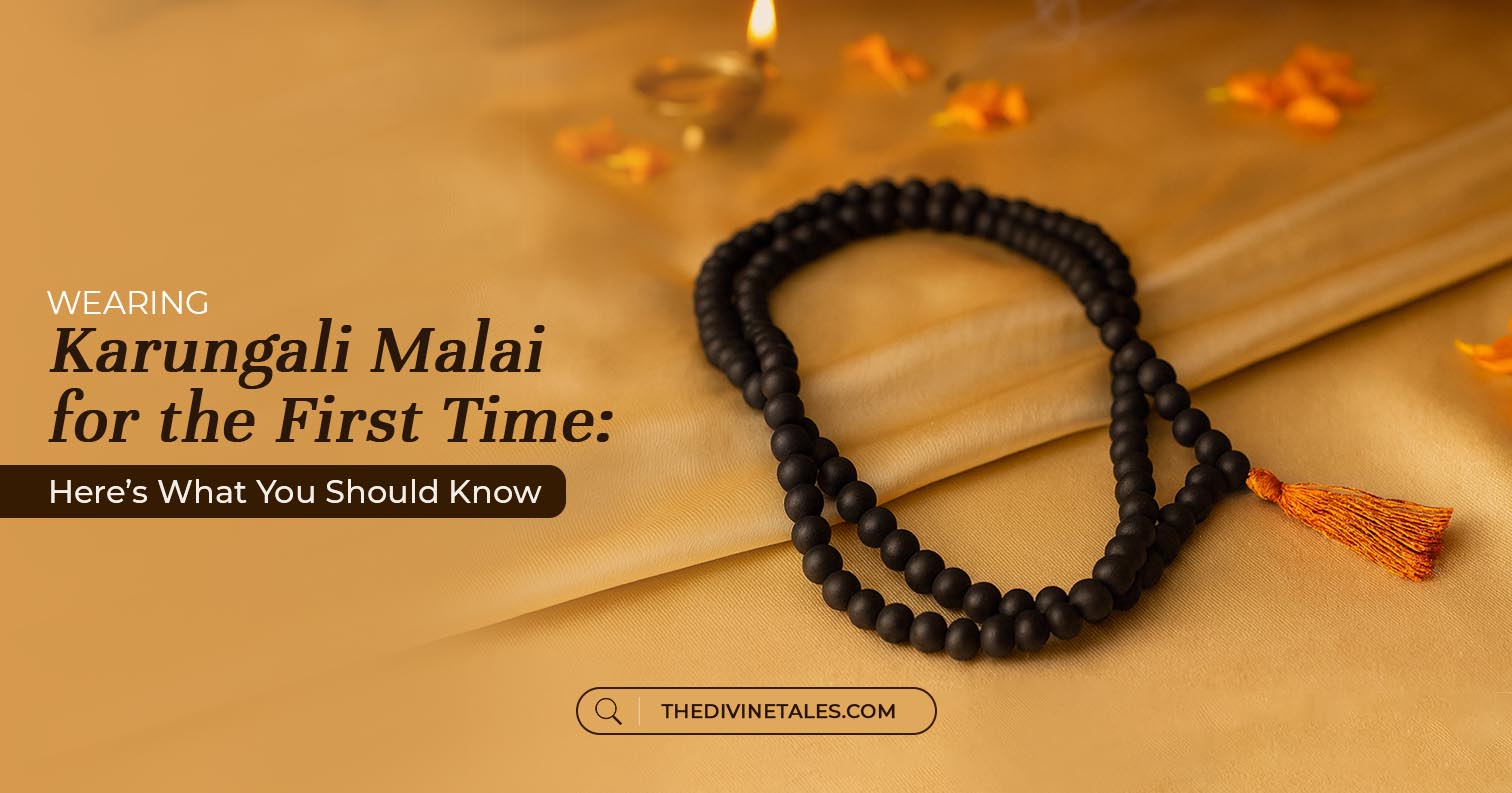When it comes to religion, very few of them are as rich and layered as Hinduism. Hinduism is filled with age-old tales and lore that sings of epic battles spanning days, fierce rivalries, and divine differences between a cast of all-powerful Gods – 33 crores, to be precise. But amidst this vast universe, some gods and goddesses truly stand out. Why? Because they embody not only power, but purpose – fighting wars, offering wisdom, shaping worlds, and sometimes, even ending them.
So, in this blog, we’re going to explore the most powerful Hindu Gods - the warriors, creators, preservers, destroyers, and divine guides who define what cosmic power truly looks like.
Who is the most powerful god in Hinduism?
In Hinduism, there isn’t a single most powerful god in a definitive sense, because power is expressed in many forms, may it be in creation, destruction, preservation, wisdom, love, etc. Different deities represent different aspects of the cosmic power. But if you are curious, The Divine Tales has curated a list of the top few names:
Top 10 Most Powerful Hindu Gods
Lord Vishnu

Known as the guardian of the universe, Lord Vishnu holds the spot of one of the most powerful Gods in Hinduism. He is known as the preserver in the Hindu trinity. According to ancient texts, whenever darkness threatens to overpower good, Vishnu takes a new form, or avatar, to restore order. Among his many avatars, Lord Rama and Lord Krishna are the most widely celebrated and worshipped.
Visually, Vishnu is often depicted with a blue complexion and four arms holding a mace, conch, discus, and lotus – each one carrying deep symbolic meanings. His presence is a reminder that no matter how chaotic things get, divine intervention is never too far away.
Lord Shiva

Called by many names, Lord Shiva is considered the most powerful god in the world by many sects and his followers. He is the God of destruction, the Lord of Time, whose role isn’t just about ending things but also clearing the path for transformation and rebirth.
Throughout the Hindu mythology, Shiva appears in many forms – from the peaceful ascetic deep in meditation, to the cosmic dancer Nataraj, and to the balanced Ardhanarishvara, symbolizing the union of masculine and feminine energies. Unlike other Gods, he exists beyond the cycle of birth & death, representing the eternal Brahman.
One of his most iconic forms – seen in countless Shiv statues across the world – shows him seated in stillness, with matted locks and the mighty Vasuki serpent coiled gracefully around his neck.
Lord Brahma

While Lord Vishnu preserves and Lord Shiva transforms, Lord Brahma is the one credited with bringing the universe into existence. As the creator in the Hindu trinity and thus among the most powerful Gods in Hinduism, his role was vital in shaping the cosmos.
In the post-Vedic era, Brahma was widely revered as the most worshipped deities of the time. However, his influence waned over the centuries. Today, there aren't many temples devoted to Brahma. This fall from grace is explained by a well-known legend: Brahma once enraged Lord Shiva, who, in addition to removing one of his five heads, cursed him that no one will worship him and hence he will be forgotten.
A more philosophical interpretation is that Lord Brahma's role as the creator is finished. Now that the universe has begun to move, it is up to Lord Shiva to direct its cycles of rebirth and Lord Vishnu to protect it.
Shakti

The word "Shakti" literally means energy or force, and this divine force takes shape through a variety of powerful goddesses, each representing a different aspect of her boundless strength.
In her gentle, nurturing form, she is Uma or Parvati, the loving mother and consort of Lord Shiva. When the universe is under threat, she rises as Durga idol, the fierce warrior goddess who battles chaos. And in her most intense and unrestrained form, Shakti becomes Kali, the destroyer of evil.
But her influence doesn’t stop with just her own avatars, as among the most powerful Gods, Shakti is the driving force behind all deities. She empowers them, fuels their purpose, and brings divine balance to the cosmos. Without Shakti, even the mightiest deities would be incomplete.
Lord Krishna

Among all the avatars of Lord Vishnu, Krishna stands out not just for his charm and wisdom, but for his divine power. He’s one of the most beloved figures and considered by many as the most powerful god in Hinduism. Even as a child, he was performing miracles that stunned gods and mortals alike. He lifted the Govardhan Hill on his finger to shield his village from a catastrophic flood, defeated many asuras, and performed various feats that revealed his divine strength early on.
Yet Krishna's most profound role was during the epic war of Mahabharata, not as a warrior but as a charioteer and guide. When he was standing beside Arjuna on the battlefield of Kurukshetra, he advised him and gave us what is now called the Bhagavad Gita, a deeply spiritual and philosophical work that continues to shape lives even today.
Also Read: Karungali Malai Benefits | 108 Unique and Different Names of Lord Krishna
Lord Ganesha

Lord Ganesha, with his elephant head and human form, is one of Hinduism’s most powerful Gods. According to legend, Goddess Parvati created him from sandalwood paste to guard her chambers. When Lord Shiva returned and was denied entry, he beheaded Ganesha, without the knowledge that he was created by his wife. When Parvati came to know about this, she became very disturbed. To calm Parvati, he later replaced the child’s head with that of an elephant.
Ganesha is revered as the god of wisdom and the remover of obstacles. From outsmarting his brother in a divine race to holding his own against Lord Parashuram, his stories are full of wisdom and courage.
During Ganesh Chaturthi, devotees worship Ganesha murti with great devotion before ceremoniously immersing it in water, symbolizing his return to the divine realm.
Lord Ram

Among the many titles given to Lord Rama, one stands out above the rest - Maryada Purusottama Ram, the Perfect Man or Upholder of Dharma. He is revered not just as a divine figure, but as the ideal example of righteousness, courage, and moral integrity - qualities that set him apart and make him one of the most powerful gods.
As the central figure of the Ramayana, Rama’s story is one of sacrifice and unwavering duty. From his 14-year exile in the forest to his epic battle with the demon king Ravana to rescue his wife, Sita, every chapter of his life reflects strength and divine purpose.
His legacy lives on through the grand celebrations of Dussehra and Diwali, festivals that honor his victory of good over evil and the triumphant return to his kingdom.
Kartikeya

Also known as Skanda, Kartikeya is the fierce and radiant God of War, born to Lord Shiva and Goddess Parvati. He embodies courage, strength, and protection, and was destined from birth to defeat the fearsome demon Taraka, safeguarding the heavens and restoring cosmic balance.
Often portrayed as a youthful, strikingly handsome warrior, Kartikeya is seen wielding a spear or sword, with his loyal companion, a majestic peacock, by his side. His divine mission and valor make him one of the most powerful gods in Hinduism.
Lord Hanuman

Among the most beloved and powerful Gods in Hinduism, Lord Hanuman stands as the perfect embodiment of strength, wisdom, and unwavering devotion. Known as the son of the wind god, Vayu, Hanuman was born with supernatural abilities, immense physical strength, the power to fly, and the ability to change his form at will. He was also granted the boon of immortality by several deities, including Lord Rama, Brahma, and Indra.
His most renowned role comes from the Ramayana, where he served Lord Rama with unmatched loyalty and played a crucial part in the battle against the demon king Ravana.
Worshipped as a symbol of courage, protection, and inner strength, everyone in the Indian household keeps a Hanuman idol to channel his qualities.
Lord Parashuram

Unlike any other avatar of Lord Vishnu, Lord Parashuram was born not to preserve peace, but to wield divine rage against injustice. He came into the world during a time when the warrior class, or Kshatriyas, had become tyrannical and corrupt. Armed with an axe bestowed by Lord Shiva himself, he took on the role of a divine enforcer, cleansing the earth of those who had strayed from the path of dharma.
What sets Parashuram apart is his immortality. It is believed that he still walks the earth, waiting for the next age in which he will once again guide the world. He represents divine wrath in its purest, most justified form - destruction for the sake of truth and justice.
Conclusion
This list can vary from region to region and according to the beliefs of the people. From the holy trinity of Brahma, Vishnu, and Shiva to the warriors like Lord Rama and Kartikeya, we worship these divine figures for their might and wisdom. They are an inspiration and show us how to live more honest and courageous lives.
Frequently Asked Questions (FAQs)
Q. Who is the most powerful god in the world?
A. The concept of the "most powerful god" varies across religions and cultures. In Hinduism, power is not limited to a single form – so any one of the major Gods can be considered the most powerful God in the world.
Q. What is the Trimurti in Hinduism?
A. The Trimurti refers to the three principal deities in Hinduism: Brahma the creator, Vishnu the preserver, and Shiva the destroyer. Together, they represent the cyclical nature of the universe: creation, preservation, and destruction.
Q. What is the most powerful name of God?
A. In Hinduism, gods have many names, each reflecting a different quality or aspect. Names like "Om", "Shiva", "Vishnu", and "Hari" are considered deeply powerful. Among them, "Om" is often seen as the most sacred and powerful, believed to be the primal sound of the universe and the essence of all creation. Chanting names like "Ram", "Krishna", or "Namah Shivaya" is also considered transformative.
Q. Are Krishna and Vishnu the same?
A. Yes, in Hindu belief, Lord Krishna is considered the eighth avatar (incarnation) of Lord Vishnu.
Q. Why is Lord Ganesha worshipped first?
A. Lord Ganesha is worshipped first before any major ritual or ceremony because he is known as the remover of obstacles and the god of beginnings. His blessings are believed to clear the path to success and remove any hindrances. There are also two mythological stories which explain this ritual.
In the first one, he was blessed by his father, Lord Shiva, who after replacing his head with that of an elephant gave him the boon of being worshipped before anyone. As per the second mythological tale, when Lord Ganesha won the race against Kartikeya by going around his parents, Lord Shiva and Parvati were so impressed that they gave him the fruit of Knowledge along with immortality.
Read Also: Famous Hanuman Temples in Delhi | Hanuman Jayanti 2025 | 7 Benefits of Hanuman Chalisa

